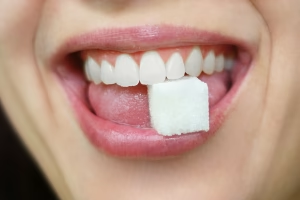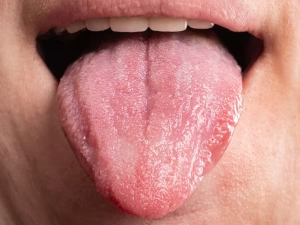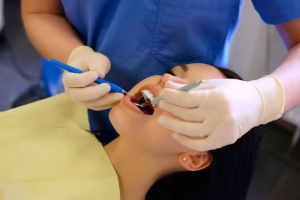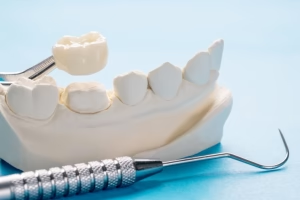Antibiotics and Tooth Infections: How They Work and When They Help
15 March 2020 | Updated: 3 November 2025
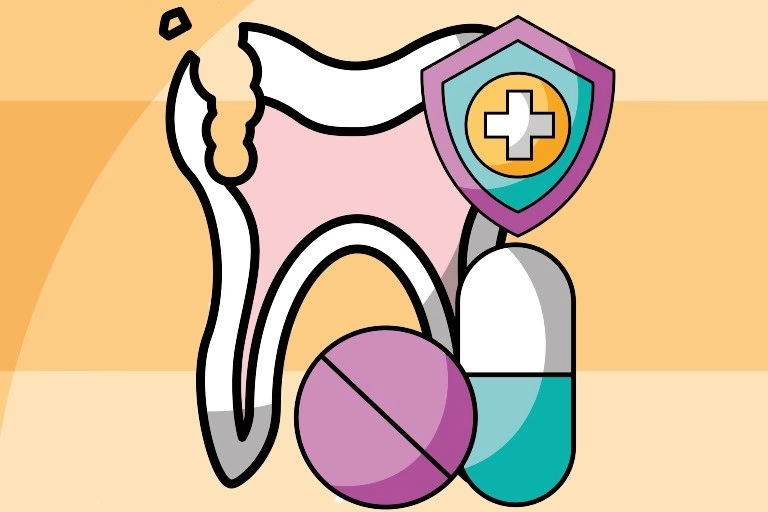
Tooth infections can be painful, persistent, and potentially serious if left untreated. While dental procedures such as a root canal are often required to remove the source of infection, antibiotics can play an important role in stopping bacteria from spreading and supporting recovery.
But how exactly do antibiotics work, and when are they truly needed for a tooth infection?
In this article, we’ll explain how antibiotics fight bacteria, when they’re appropriate for dental infections, and why they’re not always the solution. You’ll also learn about the different types of antibiotics commonly prescribed for tooth infections, how long they take to work, and the steps you can take to prevent infections from returning.
What Are Bacteria and Why Do They Matter?
Bacteria are among the most common life forms on Earth. They live in our soil, air, and water, and even inside our bodies. Most bacteria are harmless or beneficial, helping plants grow, producing essential vitamins, and supporting healthy digestion.
However, not all bacteria are friendly. Some can cause illness, from food poisoning to more serious infections like tuberculosis and tooth decay. When harmful bacteria invade the teeth, they can trigger painful infections known as dental abscesses.
The Role of Antibiotics in Fighting Infection
Before antibiotics were discovered, bacterial infections were one of the leading causes of death. That changed in 1928 when Alexander Fleming discovered penicillin, marking the beginning of modern antibiotics. These medications revolutionised medicine by allowing doctors to treat infections that were once life-threatening.
Antibiotics work by either killing bacteria or stopping them from multiplying. They do this in several ways – such as breaking down bacterial cell walls or preventing bacteria from producing essential proteins.
When it comes to tooth infections, antibiotics help control bacterial spread, reduce inflammation, and support healing – particularly before or after dental treatment. However, they can’t remove the source of infection, so a dentist’s intervention is still essential.
How Tooth Infections Develop
Tooth infections usually start with tooth decay. When bacteria build up on the teeth, they produce acids that damage the enamel. Once that protective layer is weakened, bacteria can enter deeper into the tooth – reaching the root and causing an abscess filled with pus. This leads to severe pain, swelling, and sometimes fever.
Treating the infection typically involves a root canal or, in advanced cases, tooth extraction. Antibiotics may be prescribed to prevent the infection from spreading or to manage symptoms before a procedure.
Using Antibiotics Safely

Do You Always Need Antibiotics?
Not every dental infection requires antibiotics. Only a dentist can determine whether they’re necessary after a proper examination. The type and dosage depend on the severity of infection and the specific bacteria involved.
Taking antibiotics without professional advice can do more harm than good. Unprescribed antibiotics can cause side effects, trigger allergic reactions, and contribute to antibiotic resistance. Always take antibiotics exactly as prescribed, and never stop early unless advised by your dentist.
The Risks of Misusing Antibiotics
While antibiotics are effective in treating bacterial infections, they can also cause side effects, depending on the medication and the individual. Some patients may experience stomach discomfort or nausea, while others can have allergic reactions to certain types, such as penicillin-based antibiotics.
More importantly, taking antibiotics without professional guidance contributes to a serious global issue known as antibiotic resistance. This occurs when bacteria adapt and become resistant to one or more types of antibiotics, making future infections much harder to treat.
To stay safe and protect your health, always use antibiotics only when prescribed by a qualified healthcare professional, and follow their instructions carefully from start to finish.
How Long Do Antibiotics Take to Work?
Many patients wonder how quickly antibiotics can relieve swelling and pain from a tooth infection. The answer depends on several factors, including the infection’s severity and your body’s response to treatment.
Most people start to feel better within a few days, but it’s essential to complete the full course prescribed by your dentist – even if symptoms improve. Stopping too early can allow the infection to return, often more aggressively.

Common Antibiotics Used for Tooth Infections
Different antibiotics target different bacteria. Here are the most commonly prescribed options:
-
Penicillin and Amoxicillin
The traditional first-line treatments for dental infections. However, due to growing resistance, dentists may combine them with clavulanic acid for better effectiveness.
A popular alternative that’s highly effective and widely available, especially for patients allergic to penicillin.
Used to treat a broad range of bacterial infections and ideal for those with penicillin allergies.
Belongs to the cephalosporin group and works by disrupting bacterial cell walls, making it useful for certain root canal infections.
To protect your gut health while taking antibiotics, your dentist may also recommend probiotics to help maintain healthy gut flora.
When Antibiotics Aren’t Enough
While antibiotics can relieve pain and swelling, they are not a permanent solution. Once the infection is under control, the affected tooth still needs treatment to prevent recurrence. Depending on the damage, your dentist may recommend a filling, root canal therapy, or extraction.
The best prevention? Good oral hygiene and regular dental check-ups with your dentist. It’s much easier to treat a small cavity early than to deal with an abscess later.
If you’re experiencing persistent tooth pain, swelling, or signs of infection, don’t wait for it to worsen. The experienced team at MGA Dental clinic provides same-day emergency dental care and expert infection management. Book an appointment today at MGA Dental Gold Coast or Brisbane – your trusted local clinics for fast, professional, and compassionate dental care.




